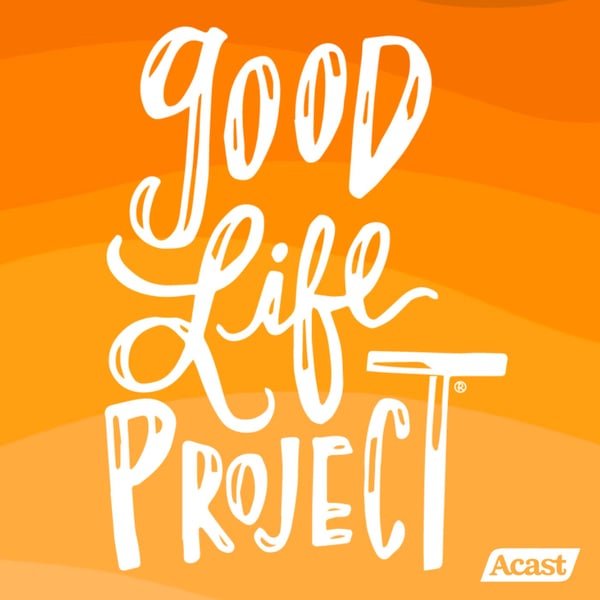Hacking Momentum: Stop When You Most Want to Go
Good Life Project
Jonathan Fields / Acast
4.6 • 3.2K Ratings
🗓️ 19 February 2016
⏱️ 8 minutes
🧾️ Download transcript
Summary
Every large scale creative endeavor, from writing a book to building a body of work, creating a collection or a company, is made up of dozens, maybe even hundreds or even thousands of smaller scale benchmarks, along with the "pushes" it takes to hit each.
Every time you hit a benchmark, it feels great. You get to ease off the push and check a box that takes you one step closer to your ultimate quest.
But, then, there's also a potential dark side to hitting these micro-goals. There's a break in the momentum. You have to rally yourself to start the push toward the next one fresh. To write the next chapter, start the next canvas, produce the next song, build the next piece of your entrepreneurial greatness.
And, the closer you get to end of the bigger endeavor, the more the voice of internal Resistance, as Steve Pressfield described it in The War of Art, rises up and tries to derail you from your work.
I've experienced this while writing books in the past. So, when I was working on my next one, I decided to try a momentum hack that I learned from none other than Ernest Hemingway.
Stop when you most want to go.
I share the details and the powerful results in today's short and sweet GLP Riff.
Hosted on Acast. See acast.com/privacy for more information.
Transcript
Click on a timestamp to play from that location
| 0:00.0 | Today we're talking about finishing when you already know where you're going to start |
| 0:08.4 | again. |
| 0:09.4 | What in the world is that all about? |
| 0:13.2 | If you have listened recently, a little while back, I shared a podcast called The Serial |
| 0:17.8 | Creation about how I was changing my creative style, there's something I didn't talk about |
| 0:22.1 | even though I was talking about writing a book. |
| 0:25.3 | And it's something that I actually learned from Ernest Hemingway a long, long time ago. |
| 0:32.4 | No, I'm not that old, actually. |
| 0:34.6 | I didn't actually sit down and have lunch with Ernest. |
| 0:38.4 | But it's something that I actually read. |
| 0:41.2 | And it was, I believe, in a Paris Review interview of Hemingway, quite a number of years |
| 0:47.1 | back. |
| 0:48.1 | And they were talking to him about his writing process. |
| 0:51.5 | And the question of how he stops and how he ends and how he begins came up. |
| 0:57.1 | And this is a really big thing for a lot of creative professionals because we're constantly, |
| 1:03.1 | I don't know if you ever heard the term, writer's block. |
| 1:05.7 | But a lot of people will say it's such a struggle to get something onto the page. |
| 1:10.1 | And it can be a canvas, it can be paint, it can be, you know, like the computer and can |
| 1:14.8 | be writing, it can be an entrepreneur who needs to come up with a new idea to test. |
| 1:20.4 | And he gets to that place and how do you get blocked. |
| 1:23.0 | So it's kind of interesting because for me, I'm not a huge believer in blocks. |
| 1:29.2 | Maybe it's because I haven't experienced them in a meaningful way, but also I haven't |
... |
Please login to see the full transcript.
Disclaimer: The podcast and artwork embedded on this page are from Jonathan Fields / Acast, and are the property of its owner and not affiliated with or endorsed by Tapesearch.
Generated transcripts are the property of Jonathan Fields / Acast and are distributed freely under the Fair Use doctrine. Transcripts generated by Tapesearch are not guaranteed to be accurate.
Copyright © Tapesearch 2025.

